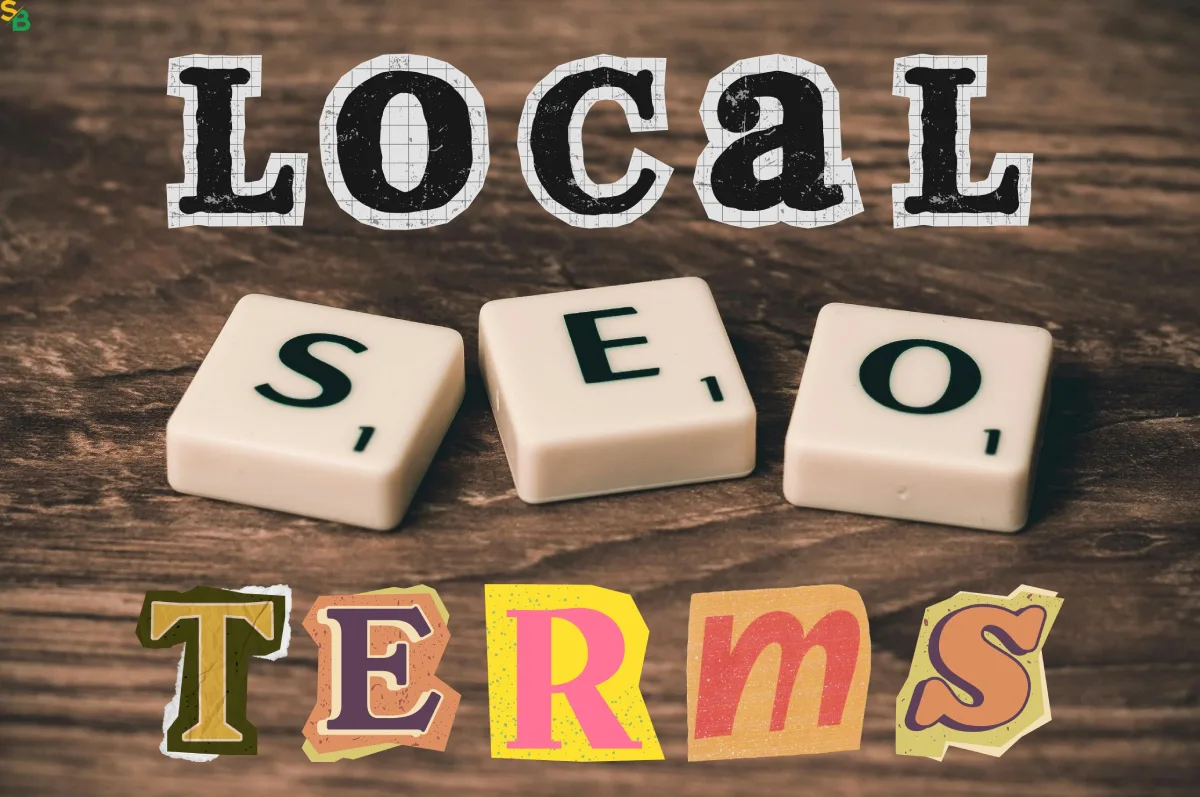This is a growing list of Local SEO Terminologies used by SEO Executives, Practitioners, Managers, Directors and everyone in the field of SEO. These terms are listed here for beginners who are new to Local SEO and they can just come here and learn about these terms, all right here. 😊
Table of Contents
What is Local SEO?
Local SEO is the practice of optimizing a business’s online presence to improve its visibility in local google search results, helping it attract customers in specific geographic areas.
NAP:
Stands for Name, Address, and Phone number, a critical element for local SEO consistency across the web.
Google My Business (GMB):
A free tool by Google that allows businesses to manage their online presence across Google Search and Maps.
Local Pack:
The set of three local business listings that appear at the top of Google’s search results for local queries.
Citation:
A mention of your business’s NAP information on another website, crucial for local SEO.
Local Citation:
An online mention of your business’s NAP on local directories, websites, or social platforms.
Review Management:
The process of managing and responding to customer reviews on various platforms to improve online reputation.
Schema Markup for Local SEO:
Structured data code added to a website to help search engines understand the local business information.
Local Link Building:
The practice of acquiring backlinks from local websites, directories, and blogs to improve local search rankings.
Geotagging:
The process of adding geographic metadata to media, such as photos or videos, to associate them with a location.
Local Keyword:
A search term that includes a specific location or region, used to target local audiences.
Geo-Targeting:
The practice of delivering content or advertisements to users based on their geographic location.
Proximity Factor:
A ranking factor that determines how close a business is to the searcher’s location.
Local Search Intent:
The purpose behind a user’s search query that indicates a desire to find local businesses or services.
Google Maps Marketing:
Strategies aimed at improving a business’s visibility on Google Maps.
Google Local Services Ads:
Ads that appear at the top of Google search results for local services, connecting businesses with local customers.
Local Rank Tracking:
The process of monitoring a business’s search engine rankings for local keywords.
Service Area Business (SAB):
A business that provides services at the customer’s location rather than at a physical storefront.
Localized Content:
Content that is tailored to appeal to a local audience, often including local keywords and references.
Local Landing Page:
A webpage specifically designed to target searchers in a particular geographic area.
City Page:
A webpage created to target users searching for services in a specific city or region.
Google Posts:
A feature within Google My Business that allows businesses to publish content directly to their GMB listing.
Map Pack:
Another term for the Local Pack, showing the top three local business listings in Google search results.
Citation Consistency:
The uniformity of a business’s NAP information across all online citations.
Citation Audit:
The process of reviewing and correcting inconsistencies in a business’s online citations.
Business Listing:
An online entry that contains the NAP and other details about a local business.
Local SEO Audit:
An in-depth analysis of a business’s online presence, focusing on local search factors.
Hyperlocal:
Refers to content or keywords that target a very specific neighborhood or area within a city.
Location Page:
A dedicated page on a website for each of the physical locations a business operates.
Localized Link Building:
Acquiring backlinks from local websites, directories, and organizations to boost local SEO.
Local Reviews:
Customer feedback on local review sites, such as Google My Business or Yelp, influencing local search rankings.
Geo-Social Platforms:
Social media platforms that allow users to check in to locations or leave location-based reviews.
Citation Burst:
A sudden increase in the number of citations, which can temporarily boost local search rankings.
Google Map Citations:
Listings on Google Maps that help improve a business’s local search visibility.
Location-Based Keywords:
Keywords that include geographic terms to target searchers in a specific location.
Neighborhood Keywords:
Keywords that target specific neighborhoods within a city to attract local customers.
Local SEO Tools:
Software designed to help businesses improve their local search rankings.
Local Competitor Analysis:
The process of evaluating the online presence and SEO strategies of local competitors.
Localized Schema Markup:
Structured data markup tailored specifically for local businesses to enhance search engine visibility.
Geo-Modifier:
A geographic term added to a keyword to target a specific location.
Local Search Volume:
The number of searches performed for a specific keyword in a particular geographic area.
Local Ranking Factors:
The various elements that influence how a business ranks in local search results.
GMB Insights:
Analytics provided by Google My Business to show how users interact with a business’s GMB listing.
GMB Categories:
The categories available in Google My Business that describe a business’s primary functions or services.
Local Search Ads:
Paid advertisements that appear in local search results, often at the top or in the Local Pack.
Localized Content Strategy:
A content plan that focuses on creating content for specific geographic areas.
Citation Building:
The process of creating and maintaining consistent citations across the web.
Local Directories:
Online platforms that list local businesses, often used for citation building.
Localized Meta Tags:
Meta tags that include local keywords to improve search engine visibility for local queries.
Local Business Schema:
Structured data markup specifically designed for local businesses to enhance their presence in search results.
Geo-Targeted PPC:
Pay-per-click advertising campaigns that target specific geographic areas.
Neighborhood Pages:
Web pages that target specific neighborhoods within a city, often used by real estate or service businesses.
Local Organic Search:
Non-paid search engine results that focus on local businesses or services.
Local Listing Management:
The process of managing and optimizing a business’s presence in local online directories.
Local Business Citations:
Mentions of a local business’s NAP information across various websites and directories.
Review Acquisition:
The strategy of encouraging customers to leave positive reviews on local platforms.
Local Search Engine Results Page (SERP):
The results page for a local search query, typically including a Local Pack.
GMB Q&A:
A feature in Google My Business that allows customers to ask questions and receive answers directly on the business listing.
Service Area Optimization:
Tailoring a business’s online presence to rank well in multiple service areas within a city or region.
Geo-Localized Content:
Content that is specifically created to target a local audience, often including regional keywords.
Location Extension:
An ad extension in Google Ads that shows a business’s location alongside its ad.
Local Business Snippet:
The short piece of information about a local business that appears in search engine results.
Geo-Fencing:
A location-based service that triggers an action when a mobile device enters a specific geographic area.
Localized SERPs:
Search engine results pages that show content relevant to the searcher’s geographic location.
Local Outreach:
Efforts to build relationships with local businesses, bloggers, and influencers for link building and promotion.
Localized URL Structure:
A website URL structure that includes geographic terms to improve local SEO.
Localized Keyword Research:
The process of finding and analyzing keywords that include geographic terms to target local searchers.
Local Review Sites:
Websites where customers can leave reviews specifically for local businesses.
Geo-Targeted Social Media:
Social media content and ads that are specifically targeted to users in a particular geographic area.
Localized Press Releases:
Press releases distributed to local media outlets to improve local SEO and visibility.
Localized Anchor Text:
Anchor text that includes local keywords to improve the relevance of backlinks for local SEO.
Geo-Targeted Content:
Content created with a specific geographic audience in mind, often including local keywords.
Localized Image Optimization:
The process of optimizing images with local keywords in the alt text and file names.
Local Business Citations Checker:
A tool used to find and verify a business’s citations across the web.
Google My Business Posts:
Updates that a business can post on their GMB listing to engage with customers.
Local Business Attributes:
Features or services listed on a Google My Business profile that describe a business’s offerings.
Local Link Juice: The value or authority passed from local backlinks to a website, helping improve its local search ranking.
Localized Video SEO:
The practice of optimizing videos with local keywords to improve their visibility in local search results.
Geo-Targeted Email Marketing:
Email campaigns that are segmented and targeted based on the recipient’s geographic location.
Local Business Citation Finder:
A tool used to identify potential sites where a business’s NAP information can be listed.
Localized User Experience (UX):
Tailoring a website’s design and content to meet the needs of a local audience.
Localized Competitor Research:
Analyzing local competitors to understand their strategies and improve local SEO efforts.
Local SEO Reporting:
The process of generating reports that track the performance of local SEO efforts, including rankings, traffic, and conversions.
Localized Meta Descriptions:
Meta descriptions that include local keywords to improve click-through rates from local search results.

This is Muhammad Asad. I like to play table tennis and love Digital Marketing and SEO. I have more 7 years of Digital Marketing experience. I would love to chat.

